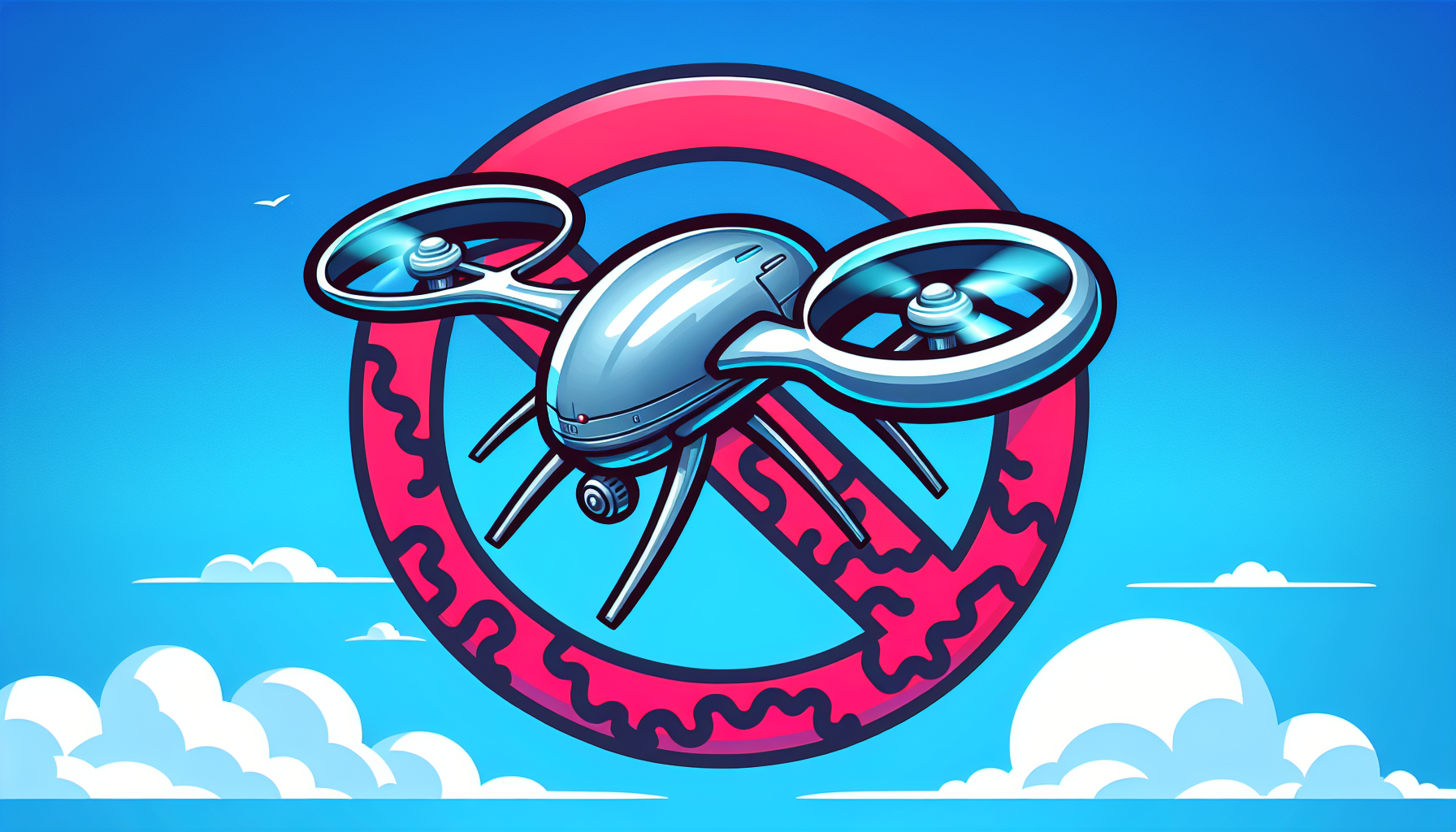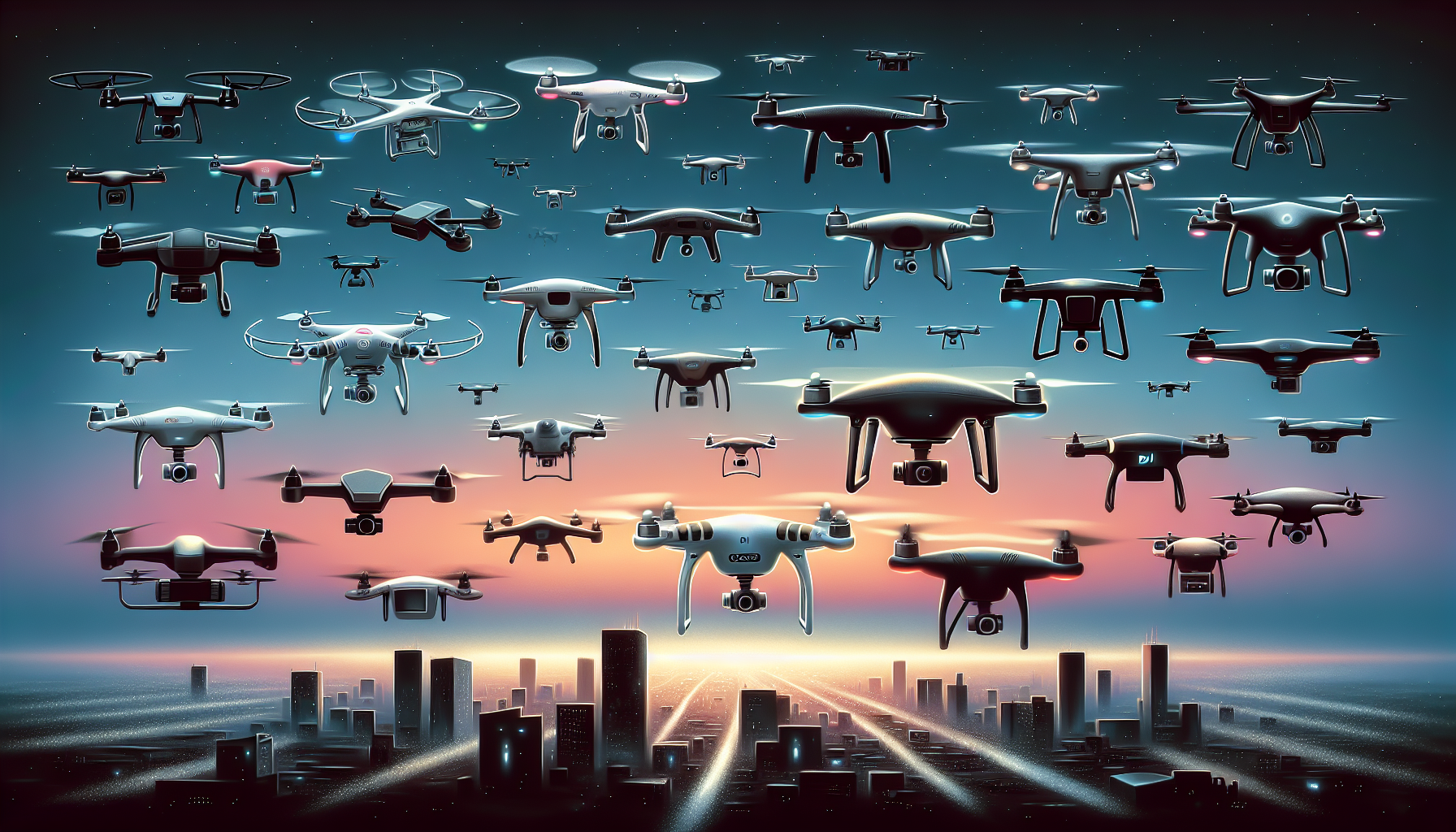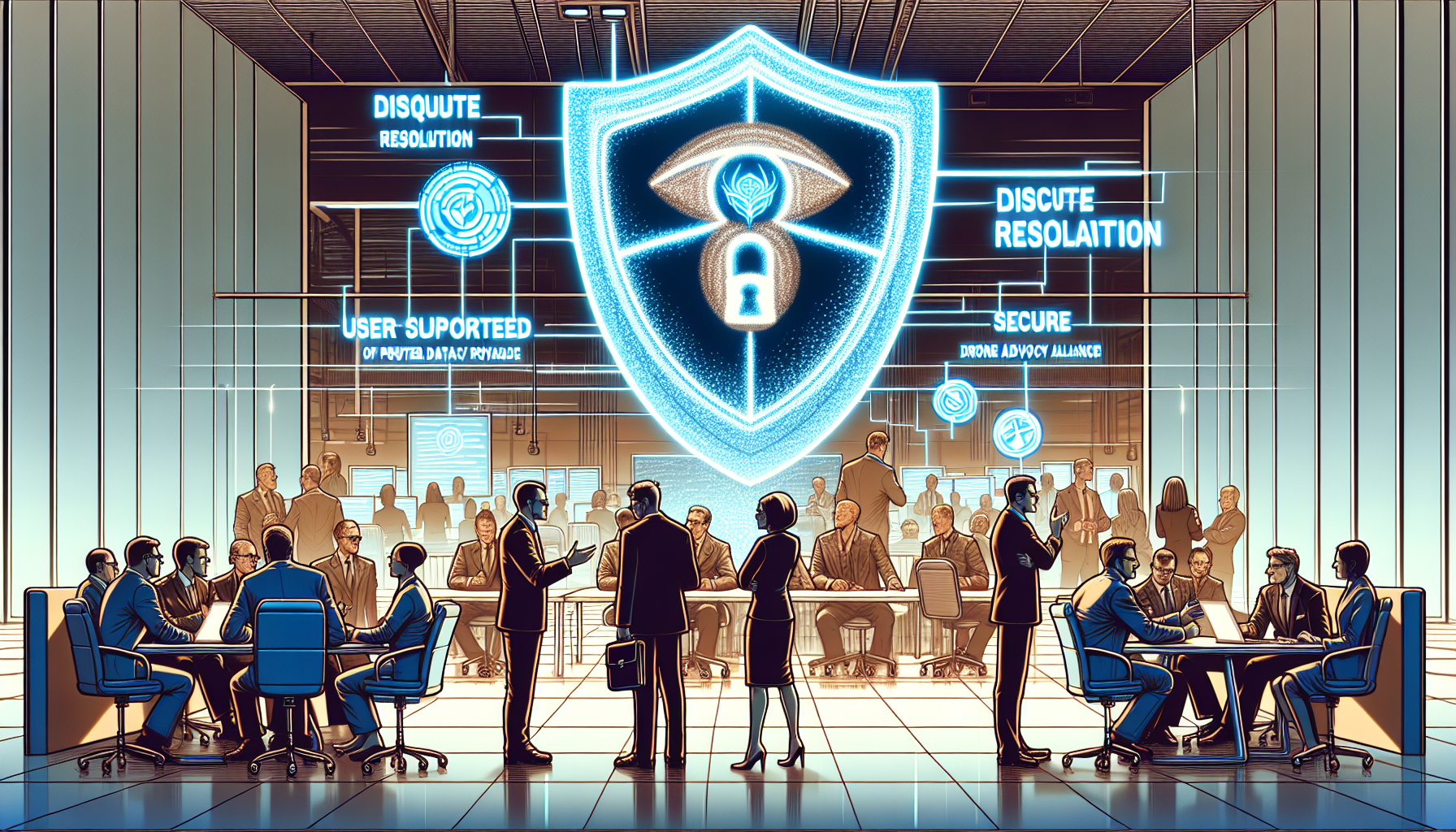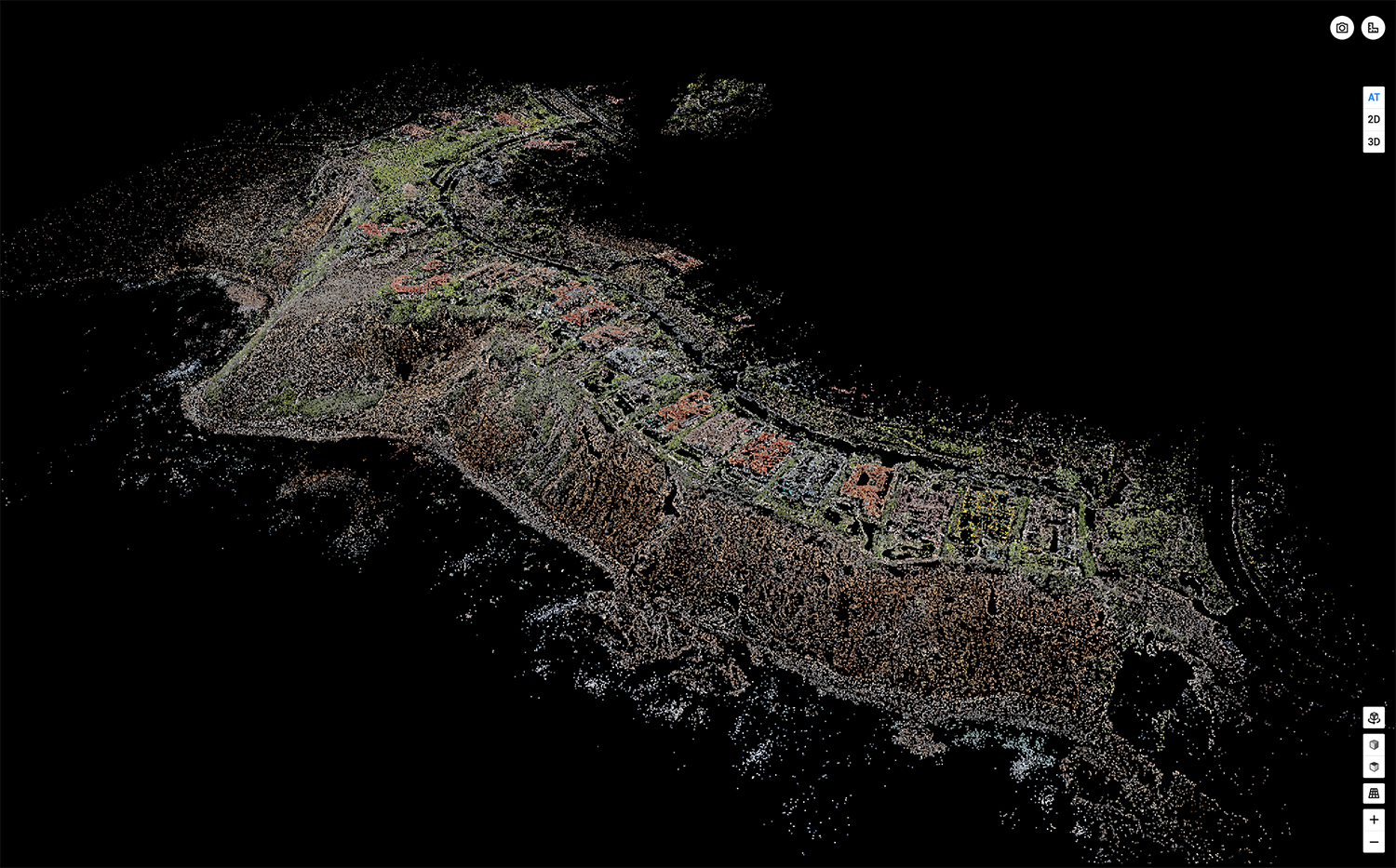Table Of Contents
The dji drone ban is a pressing concern for drone users and industry stakeholders. This article provides current insights on the legal status of the ban, how it affects your access to DJI drones, and highlights emerging alternatives that are reshaping the drone landscape.
Key Takeaways
- The possible inclusion of the Countering CCP Drone Act in the NDAA for 2025 could lead to a significant ban on DJI drones in the US, emphasizing national security over consumer use.
- Current legislation targeting DJI aims to prevent Chinese-made drones from transmitting data to the Chinese government, with potential drastic impact on drone industry competition, pricing, and innovation.
- Alternatives to DJI, such as Skydio, Brinc, and Autel, are emerging in the market, with companies preparing for a post-DJI landscape that fosters competition and could usher in advanced drone technologies.
The Current Status of the DJI Drone Ban

Recent developments on Capitol Hill have stirred the drone industry, as the Countering CCP Drone Act—specifically targeting DJI drones—is now part of the National Defense Authorization Act (NDAA) for fiscal 2025. With the NDAA’s critical role in funding defense operations, it’s a legislative vehicle that carries considerable weight and is not easily dismissed. Having navigated through numerous committees, such as the Energy and Commerce Committee, the bill signifies a determined legislative effort to enforce a ban on DJI drones.
However, the bill is still under consideration in the House and Senate, with June 12th marked as a significant date for Senate evaluation. The situation remains fluid, and while a ban on DJI drones looms on the horizon, the final outcome is far from sealed.
A decision of this magnitude carries extensive implications, affecting not only the drone market but also wider geopolitical and technological sectors.
Unpacking the Countering CCP Drones Act
Known in Congress as H.R. 2864, the Countering CCP Drones Act leads the United States’ legislative campaign to limit Chinese-made drones, including those manufactured by industry titan DJI. This act is a manifestation of the growing national security concerns that Chinese technology, in the form of drones, could pose as a conduit for data sharing with the Chinese government. The specter of espionage and the safeguarding of America’s critical infrastructure are at the heart of the argument for the Countering CCP Drones Act.
This proposed legislation, which could drastically alter the drone industry, aims to:
- Place DJI on the Federal Communications Commission (FCC) Covered List, thereby curbing the company’s capacity to link new DJI drones to the U.S. communications infrastructure
- Have government agencies play a central role in examining every aspect and influencing the course of this bill through Congress
- Determine the future of DJI drones in the United States
The stakes are high, and the outcome of this legislation could redefine the landscape of drone technology as we know it.
The Impact on the Drone Market
The impending threat of a DJI drone ban introduces uncertainty into the drone market, a space where DJI’s impact has been undeniably significant. Their drones, such as the Phantom 4 and Mavic Pro, have not only defined consumer expectations but also propelled the drone industry forward with innovation. The potential consequences of a DJI drone ban include:
- A constriction of competition, with consumers facing a narrower range of options
- Potentially inflated prices for the drones that remain
- The halt of new DJI products to American shores, disrupting the status quo and curtailing the availability of the latest drone advancements.
However, amidst this approaching storm, a silver lining appears. DJI’s possible withdrawal could spark a wave of opportunities for other brands, instigating a market transformation. While DJI currently holds an impressive 70-80% of the market share, their absence could level the playing field, spurring competition and diversity in drone offerings. This scenario paints a picture of a drone market in transition, with the possibility of new leaders emerging to fill the void left by DJI’s diminished presence.
Alternatives to DJI: Exploring the Landscape
As the industry prepares for the potential repercussions of DJI restrictions, the search for alternatives intensifies. Drone enthusiasts and professionals alike are turning their gaze towards the horizon, seeking out viable options beyond the familiar offerings of DJI.
For the budget-conscious, drones like the Ryze Tello and Crazyflie Nano beckon with their sub-$500 price tags, while the HoverAir X1 and Autel EVO Nano+ present distinctive features for those willing to invest in the sub-$1,000 range. The landscape is evolving, and with it, the choices available to those who look to the skies for business, pleasure, or the simple thrill of flight.
Are There Viable Competitors?
A question reverberates through the drone industry: does any company have the potential to challenge DJI’s supremacy? The answer, it seems, is beginning to take shape as companies like:
- Skydio
- Brinc
- Anzu Robotics
- Autel
emerge from the shadows, positioning themselves as formidable U.S. contenders in the face of restrictions on DJI drones. Anzu Robotics, with its eye on the U.S. market, offers drones boasting advanced technology akin to DJI’s, yet unencumbered by the looming ban. Autel’s Evo Nano+ is making waves in the lightweight drone category, challenging DJI’s hold with its impressive camera capabilities.
Nonetheless, the journey towards competitiveness is laden with hurdles. The U.S. drone industry grapples with high production costs and infrastructural challenges that hamper the availability of consumer-level alternatives to DJI’s polished products. Yet, the prospect of a DJI ban presents an invaluable opportunity to nurture a robust, competitive drone industry within the United States, fostering innovation and growth that could redefine the market. The emergence of accessible options like BetaFPV’s Cetus Pro Kit for beginners to FPV drone flight signifies a market that is diversifying and expanding beyond the reach of DJI’s shadow.
Emerging Drone Technologies
As the industry looks to the future, emerging drone technologies are taking flight, promising to challenge DJI’s long-standing dominance and redefine what’s possible in the drone sphere. Anzu Robotics is leading this charge, infusing the market with its Raptor drone series, which boasts domestic software developed in partnership with Aloft Technologies. This innovation represents a new breed of drones, engineered to meet U.S. regulatory standards while pushing the boundaries of drone capabilities.
The commercial drone sector is also witnessing trailblazers like Sony Airpeak and Skyfish Osprey, which carry the prestigious Sony Alpha cameras. These advanced platforms signal a transition that could very well extend into the consumer drones market, offering sophisticated alternatives to DJI’s lineup. Such technologies not only represent a leap forward in drone capabilities but also embody the spirit of competition and innovation that keeps the industry vibrant and ever-evolving.
National Security Concerns vs. Consumer Interests
The discourse surrounding DJI drones merges national security issues with consumer interest, resulting in a multifaceted web of concerns that resist straightforward solutions. On one side, national security takes precedence, with fears of espionage and the vulnerability of critical infrastructure fueling the push for restrictions on DJI drones. On the other, the benefits that DJI’s technology brings to sectors like public safety and goods delivery are undeniable, leading to vocal opposition from public safety agencies and first responder groups who rely on these drones for life-saving operations.
These stakeholders argue for a nuanced approach that addresses the security risks without stifling innovation or hindering essential services. The Department of Defense’s decision to add DJI to its 2022 blacklist underscores the gravity of national security concerns, but it also highlights the need for a balanced solution that safeguards the country without unnecessarily hobbling the drone industry’s potential. It’s a delicate balancing act, one where the voices and needs of both national security and the consumer market must be carefully weighed and reconciled.
The Role of Government Agencies
In the ongoing saga of the DJI drone ban, government agencies take the helm, exerting substantial influence over the legislative proceedings. The proposed measures, such as placing DJI on the FCC Covered List, could have profound implications for licenses vital to public safety drone operations, affecting nearly 90% of these missions. Hence, the role of government agencies extends far beyond mere regulation; it involves steering the conversation towards comprehensive policies that address the multifaceted nature of drone technology and its implications for national security.
The call for additional test ranges and the establishment of a policy advisory group emphasize the need for cooperation between various sectors, including businesses, federal entities, and academia, to mitigate risks while promoting growth. Some lawmakers advocate for targeted measures and stricter security protocols for all drone manufacturers, rather than a blanket ban, suggesting that a more effective path may lie in refining the approach to drone security rather than resorting to outright prohibition.
DJI’s Response and Lobbying Efforts
Amid the upheaval of proposed legislation, DJI has launched a vigorous defense, refuting allegations against its activities and emphasizing user control over data collection. The company insists on its compliance with global market regulations and vehemently denies any involvement in the production or supply of military-grade or combat-associated drones. In an effort to rally support, DJI has established the Drone Advocacy Alliance, a platform aimed at uniting industry members and drone users to champion the cause of drone freedom and facilitate constructive dialogue with legislative representatives. As a leader in the industry, DJI Technologies is committed to maintaining transparency and ethical practices.
DJI’s lobbying efforts reflect a strategic pivot towards advocacy and public persuasion, underscoring the importance of maintaining a cooperative relationship between the drone industry and policymakers. The Drone Advocacy Alliance is not merely a response mechanism but a proactive step towards shaping the narrative around drone usage and ensuring that the voices of drone operators are heard in the halls of power.
How Pilots and Users Are Affected
The effects of a potential DJI ban reach well beyond legislative chambers, impacting hobby pilots, businesses, and organizations that depend on DJI drones for a multitude of activities and services. Hobbyists face the prospect of a constrained market, where finding affordable drones that meet their specific needs becomes a significant challenge. For professionals, such as photographers and videographers, the proposed ban poses serious obstacles, threatening the very tools that are integral to their craft.
Organizations that utilize DJI drones for critical functions like agricultural monitoring and search and rescue operations may encounter disruptions that could impact their effectiveness and service delivery due to the potential “ban dji drones” scenario. Conversely, for those looking to offload their DJI models, the ban might unexpectedly inflate the second-hand market value of these drones, presenting a financial upside to the looming “restrict dji” regulations. The panorama for drone pilots and users is one of adjustment and adaptation, as they navigate the shifting landscape shaped by the potential ban on DJI drones.
Navigating Legal Restrictions and Compliance
For drone operators, adhering to legal restrictions is a crucial aspect of responsible and professional drone operation. Adhering to Part 107 FAA regulations is just the beginning, requiring operators to fulfill a series of prerequisites, including age, language proficiency, and aeronautical knowledge, along with passing the Part 107 Knowledge Test. Once airborne, drones must remain below 400 feet, maintain a visual line of sight, avoid populated areas, and be properly registered and labeled with the FAA-issued number.
Beyond these fundamental rules, operators are also urged to:
- Conduct thorough pre-flight checklists
- Perform risk assessments
- Establish emergency procedures
- Stay abreast of any updates to FAA regulations
- Maintain accurate flight logs
By following case studies of adherence to best practices and understanding the evolving nature of drone legislation, operators can ensure their long-term success in the drone industry, maintaining high standards of safety and professionalism.
Summary
The potential DJI drone ban is a multifaceted issue that stands at the intersection of innovation, regulation, and security. As we’ve explored, the implications of such a ban ripple through various sectors, challenging the drone industry to adapt and evolve. From the halls of Congress to the open skies, the narrative of drones in America is being rewritten, with stakeholders across the spectrum navigating a future where the balance between national security and consumer interests is more critical than ever. As this story unfolds, one thing remains clear: the skies, once open to the pioneering spirit of drone enthusiasts, are now charting a new course in the age of cybersecurity and technological sovereignty.
Frequently Asked Questions
What is the Countering CCP Drones Act and why is it significant?
The Countering CCP Drones Act (H.R. 2864) aims to restrict Chinese-made drones from the U.S. communications infrastructure due to national security concerns. It’s significant as it could lead to a substantial ban on DJI drones, impacting the drone industry and consumer choices.
How might a DJI drone ban impact the drone market?
A DJI drone ban could lead to decreased competition, less variety in available drones, and potentially higher prices for consumers. This may also impede innovation in the drone market.
Are there any viable competitors to DJI in the drone market?
Yes, companies like Skydio, Brinc, Anzu Robotics, and Autel are emerging as potential competitors to DJI in the drone market, offering distinctive features and technologies that challenge DJI’s dominance.
What role do government agencies play in the potential DJI drone ban?
Government agencies play a crucial role in the potential DJI drone ban by contributing to the legislative process, formulating policies, and advising on national security measures. Their involvement in discussions and recommendations of test ranges for counter-drone technologies further highlights their impact in this matter.
What should drone operators do to comply with legal restrictions and regulations?
Drone operators should adhere to FAA regulations, obtain necessary certifications, fly within altitude limits, maintain visual line of sight, perform pre-flight checklists, and stay updated on regulatory changes for safe operation.








